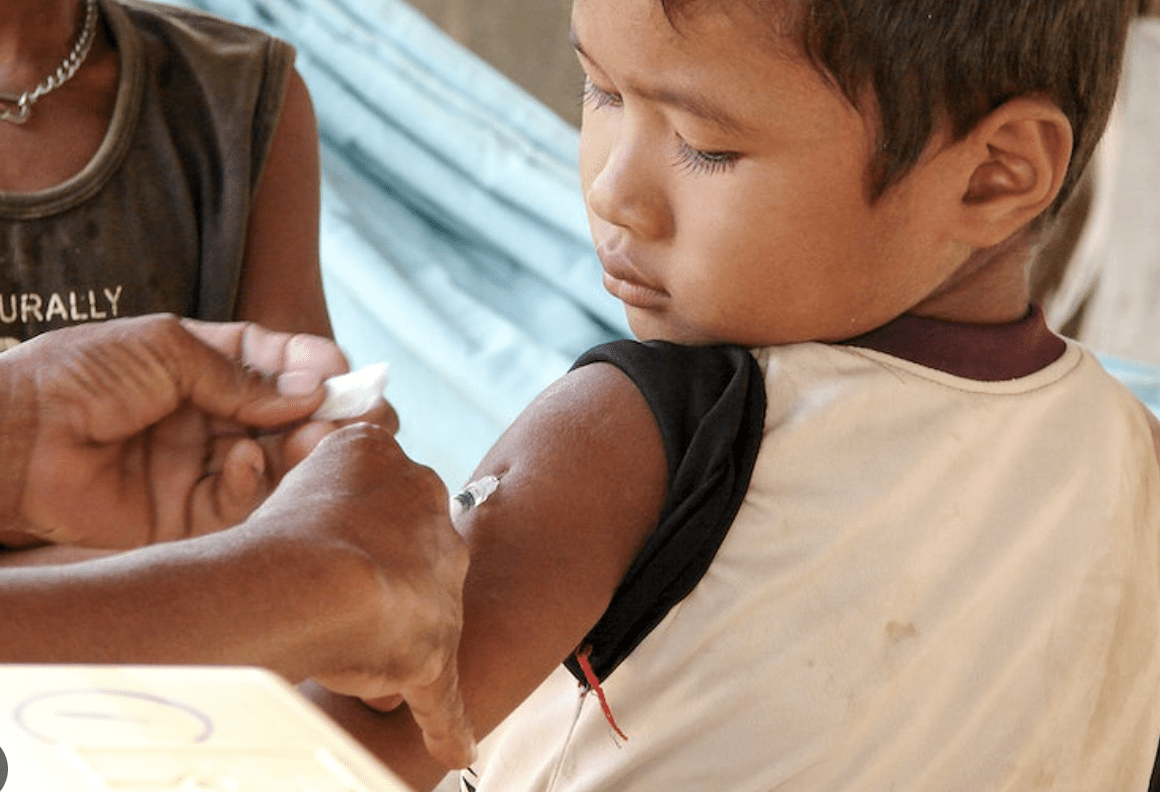ARS TECHNICA – State health departments are facing federal budget cuts to programs that support childhood vaccination, which are coming at a time when immunization rates among children are slipping and under threat from anti-vaccine rhetoric.
News of the budget cuts was first reported by KFF Health News [see story below], which obtained a Centers for Disease Control and Prevention email dated June 27 that informed states of future funding reductions.
The email, addressed to state immunization managers and signed by two CDC officials, said that the cuts will be “a significant change to your budget.”
“There will be no easy solution for this,” the CDC email read. “We know that this change will require some tough decisions.”
According to Claire Hannan, executive director of the Association of Immunization Managers (AIM), the budget cut eliminates federal funding specifically for the “immunization information systems” (IIS) program.
In an interview with Ars, Hannan explained that the IIS basically supports immunization registries—systems that track vaccine doses administered. These data systems are also used to do things like pull up provider vaccine orders, run reports, and identify schools and zip codes where immunization rates are low.
The size of the budget reductions that states face is not yet entirely clear, Hannan said. Of 64 health jurisdictions, 44 have been in touch with AIM about the budget cuts.
Those 44 jurisdictions reported that the loss of expected IIS funding would mean cuts ranging from 9.5 percent to 30 percent of the overall funding they were expecting for the grant year that began July 1.
It amounts to a 10 percent to 37 percent reduction from what they actually received in the grant year that just ended.
“This is pretty unprecedented; it was completely unexpected,” Hannan said. Right now, “we have a lot of concerns,” she added, but state health departments don’t yet know their total grant award notifications, so it’s unclear if or how well they’ll be able to move money around … READ MORE.
CDC to Reduce Funding for States’ Child Vaccination Programs
KFF HEALTH NEWS – The Centers for Disease Control and Prevention is reducing funding to states for child vaccination programs, according to an agency email obtained by KFF Health News.
The funding cut “is a significant change to your budget,” said the email to immunization managers, dated June 27 and signed by two CDC officials.
The immunization managers who received the message are public health officials who direct state, territorial, and local programs to promote vaccinations against a variety of infectious diseases, such as measles and chickenpox.
The reduction comes from a federal immunization grant — totaling about $680 million in the latest year — that supports vaccination programs for children, according to the Association of Immunization Managers.
“There will be no easy solution for this,” said the CDC email. “We know that this change will require some tough decisions.”
When asked about the change, CDC spokesperson Kristen Nordlund said Monday, “The budgetary impact is still being worked out.”
Agency officials linked the reduction to the debt ceiling deal recently struck by the Biden administration and Congress. The cut may result in less complete reporting on vaccinations, the CDC said.
The debt deal rescinded about $27 billion in unspent federal money that had been allocated to fight covid. It also led the CDC to remove $400 million in funding to states for workers who fight the spread of sexually transmitted infections, according to an email obtained by CQ Roll Call.
Claire Hannan, executive director of the Association of Immunization Managers, said Wednesday that jurisdictions are reporting that the cut amounts to 10% or more of their previous year’s award.
The targeted cut will affect programs that identify communities vulnerable to disease outbreaks, said Hannan. This information is used to prevent and manage outbreaks, Hannan added.
States and territories, along with a few cities, are expected to learn their federal funding amounts for child immunization this week, Hannan said.
A spokesperson for the Georgia Department of Public Health, Nancy Nydam, acknowledged that a funding cut for child immunizations was coming but said the agency hadn’t received additional details as of Monday afternoon.
The budget cut comes as the number of children getting vaccinated dropped amid the covid pandemic. During the 2021-22 school year, approximately 93% of kindergartners nationwide received each of the MMR (measles, mumps, and rubella), DTaP (diphtheria, tetanus, and acellular pertussis), polio, and varicella vaccines. That was down from 94% during the 2020-21 school year and 95% coverage during 2019-20.
Children who are not vaccinated are more likely to get diseases like measles and whooping cough, the CDC points out on its website. Outbreaks of these diseases have occurred recently, especially in communities with low vaccination rates.
“Now is not the time to reduce federal support for routine childhood vaccine administration,” said Mark Del Monte, CEO of the American Academy of Pediatrics. “We need to make sure every child remains fully up to date on their vaccinations as we approach back-to-school season, and that requires sustained investments in the vaccine delivery system.”
Shifting money from one area to another isn’t easy because of rigidity in the CDC’s budget, said Georges Benjamin, executive director of the American Public Health Association.
Local public health agencies depend on federal funding to support their immunization programs, Benjamin said. He worries low-income families are especially vulnerable if local departments face budget cuts.
“This is what happens when you don’t pay attention to public health,” Benjamin said.
KFF Health News is a national newsroom that produces in-depth journalism about health issues and is one of the core operating programs at KFF—an independent source of health policy research, polling, and journalism. Learn more about KFF.
Subscribe to KFF Health News’ free Morning Briefing.



